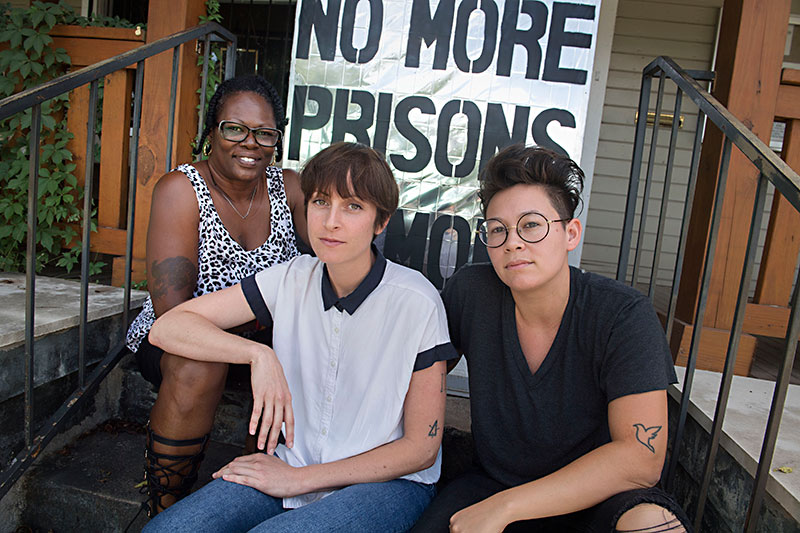Walk-In Walk-Out
County commissioners change course on substance abuse treatment funding
By Lindsay Stafford Mader, Fri., Nov. 9, 2018
On Oct. 23, Travis County commissioners voted to send $125,000 to Integral Care's existing substance abuse initiatives, a seemingly positive move for a county with only one inpatient detox facility, lengthy treatment wait times, and decreasing investment in addiction efforts. But the way the county handled the decision has blindsided one of its community partners.
The funding request originated during the annual budget public hearing, which County Judge Sarah Eckhardt has described as letting "the taxpayers who are footing the bill" speak directly to the court. Local nonprofit Grassroots Leadership asked commissioners to send $450,000 to supplement a planned 24-hour opioid walk-in center so that the facility could treat people using all substances, not just opiates. This was part of ongoing discussions about a new $97 million women's jail and Grassroots' encouragement of jail diversion.
In a budget markup session later that month, Commissioner Brigid Shea said the Grassroots proposal wasn't ready but talked about working with them and the Austin Harm Reduction Coalition, which plans to open the center; Eckhardt mentioned that the county could work "with all of the stakeholders" moving forward. Commissioners agreed to send $125,000 toward the effort and charged its Justice Planning Department with determining the "highest and best use of that money to increase capacity for self-identifying ... individuals [with mental health or substance abuse disorders] who would otherwise find themselves in a criminal justice context."
Grassroots emailed Justice Planning about next steps in August and September, and a few weeks later they again sought direction at a Commissioners Court meeting. Eckhardt told them the county would "be looking to put together a request for proposal around what we believe would be the highest and best use for that $125,000, with whichever partners would be most appropriate to a governmental entity. ... When we fund services as a governmental entity, it must be competitively bid ... unless it's a sole source and whatnot."
At the meeting on Oct. 23, Justice Planning presented commissioners with three options: 1) start a competitive bid process; 2) send the money to AHRC as Grassroots requested; or 3) send it to Integral Care, a quasi-governmental entity that runs the county's mental health and intellectual and developmental disability services. Commissioners unanimously voted to send the money to Integral Care. During the month before the vote, Justice Planning never reached out to Grassroots or AHRC because, it says, doing so would have made the groups ineligible to submit a competitive bid. But it did reach out to Integral Care, and somebody else at the county contacted another nonprofit addiction treatment center, Austin Recovery. "I was disappointed that rather than have a fair and transparent process, the county had already made other plans for the use of the funds," says Cate Graziani of Grassroots. "Adding a little bit of money to Integral Care's existing programs isn't going to stem the tide of people getting locked up for low-level drug offenses; a 24-hour walk-in center has the potential to change the way we deal with substance abuse disorder in the community."
When Graziani expressed her grievances with the court, only Commissioner Gerald Daugherty commiserated, despite his earlier concerns about clean needle graphics on AHRC's website. He retracted his original motion to fund Integral Care, saying, "I do agree that the 125 was put in there for y'all. That's the reason it came about." Shea, meanwhile, said her vote was based on a "real issue of immediacy" to help more people and the fact that AHRC's facility isn't yet operational. Graziani told the court that the center will open soon despite a delay in state funding.
Grassroots says it would have preferred a competitive process that illuminated how proposals would impact the jail population. As Eckhardt pointed out, anything over $50,000 must go through a competitive bid process unless there is only one "sole" source capable of providing the service. That isn't the case here, since several local organizations provide treatment services. Travis County's head of Justice Planning, Roger Jeffries, told me that it was acting based on another law that allows for11 circumstances in which a competitive process may be avoided, but this requires the Commissioners Court to issue an order granting an exemption. When asked for the date that the court approved such an order, the county then cited yet another law that lets it forgo competitive bidding to contract directly with other governmental entities.
As it stands, the county's $125,000 will mainly fund Integral Care's outpatient, appointment-based opioid addiction treatment program, while the remainder will go toward its narcotics treatment and medication-assisted treatment programs as well as the private MARS Clinic, which will treat patients on Integral Care waitlists as well as patients in jail-diversion-related programs. While these all focus on opioid addiction, Integral Care says it can treat addiction to other substances. Graziani told the court that it and the Texas Criminal Justice Coalition did extensive research to determine treatment gaps and arrive at its support of a 24-hour walk-in center, which Travis County does not currently have.
Got something to say on the subject? Send a letter to the editor.











